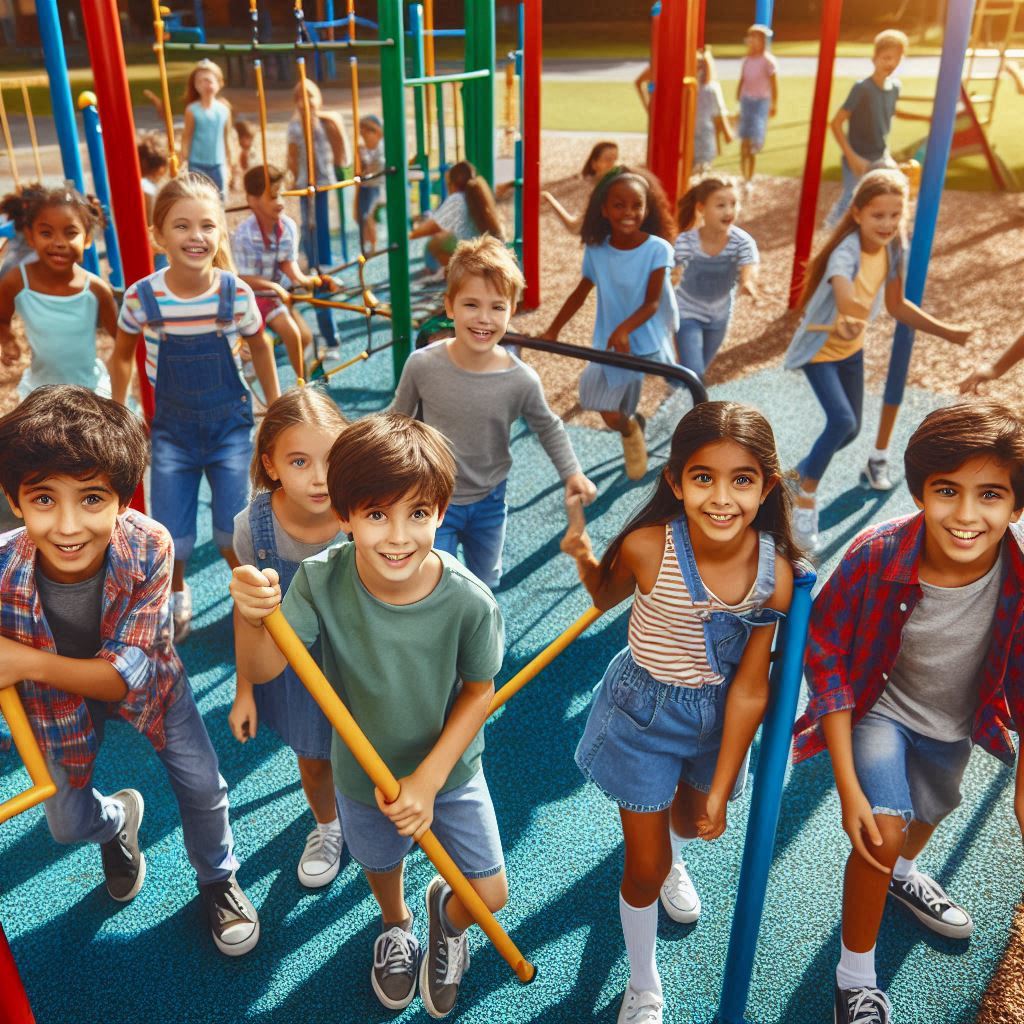Playground time isn’t just about fun and games—it’s a crucial learning opportunity for children to develop essential social skills. In the less-regulated environment of the playground, kids practice listening, understanding social cues, negotiating, and even apologising to their peers. This real-world interaction helps them navigate social complexities and build vital interpersonal skills that will serve them throughout their lives.

Practicing Social Skills in a Natural Setting
- Listening and Communication: On the playground, children are constantly communicating with each other. Whether they’re deciding the rules of a game, sharing stories, or resolving conflicts, these interactions require active listening and effective communication. Kids learn to express themselves clearly and understand others’ viewpoints, which are fundamental skills for successful social interactions.
- Understanding Social Cues: The playground is a dynamic social environment where children learn to read and respond to social cues. They observe body language, facial expressions, and tone of voice to gauge how their peers are feeling and what they might be thinking. This ability to interpret non-verbal communication is crucial for empathy and building strong social connections.
- Negotiation and Conflict Resolution: Conflicts are inevitable in any group setting, and the playground is no exception. Here, children learn to negotiate and resolve disputes without adult intervention. They practice compromise, take turns, and learn the value of fairness. These experiences teach them how to manage disagreements and maintain positive relationships.
- Apologising and Making Amends: Children also learn the importance of apologising and making amends when conflicts arise. Understanding when and how to apologise helps them develop accountability and empathy. These moments of reconciliation are vital for personal growth and maintaining friendships.
The Role of Playground Design
Playground design plays a significant role in facilitating social interactions. Communal equipment, such as seesaws, swings, and climbing structures, encourages children to play together, fostering teamwork and cooperation. Inclusive playgrounds that accommodate children of all abilities promote a sense of community and teach kids the value of inclusivity and diversity.
- Encouraging Interaction: Equipment that requires cooperation, like group swings or large climbing structures, encourages children to work together. These activities promote teamwork and help children learn to share, collaborate, and support each other.
- Promoting Physical and Social Development: Playgrounds that offer a variety of equipment cater to different interests and abilities, ensuring that all children can participate and interact. This inclusivity fosters a supportive environment where kids learn to appreciate and respect individual differences.
Learning About Consequences
Playgrounds provide children with firsthand experiences of consequences. For instance, if they don’t take turns, they might face resistance from peers. These immediate, tangible outcomes reinforce the lessons taught at home and school about cooperation, respect, and fairness.
- Real-World Learning: Experiencing the consequences of their actions in a real-world setting helps children understand cause and effect. This understanding is crucial for developing self-regulation and responsible behaviour.
- Building Resilience: Facing challenges and setbacks on the playground teaches children resilience. They learn to cope with disappointment, persist through difficulties, and try again after failure. These experiences build confidence and a growth mindset.
Encouraging More Playground Time
Given the significant benefits of playground time, it’s essential to encourage more opportunities for children to engage in outdoor play. Parents, educators, and communities can support this by prioritising safe and accessible playgrounds and encouraging regular playtime.
- Promoting Physical Health: In addition to social benefits, playground time promotes physical health. Active play helps children develop motor skills, strength, and overall fitness.
- Fostering Independence: Allowing children to play freely on the playground fosters independence. They make their own decisions, take risks, and explore their abilities, which is vital for their overall development.
Playground time is a vital aspect of children’s development, offering a unique and valuable opportunity for social skill-building. By practicing communication, understanding social cues, resolving conflicts, and learning about consequences in a less-regulated environment, children develop essential skills that will benefit them throughout their lives. Encouraging regular playground time and supporting inclusive playground designs can significantly enhance these learning experiences, fostering well-rounded, socially adept individuals
